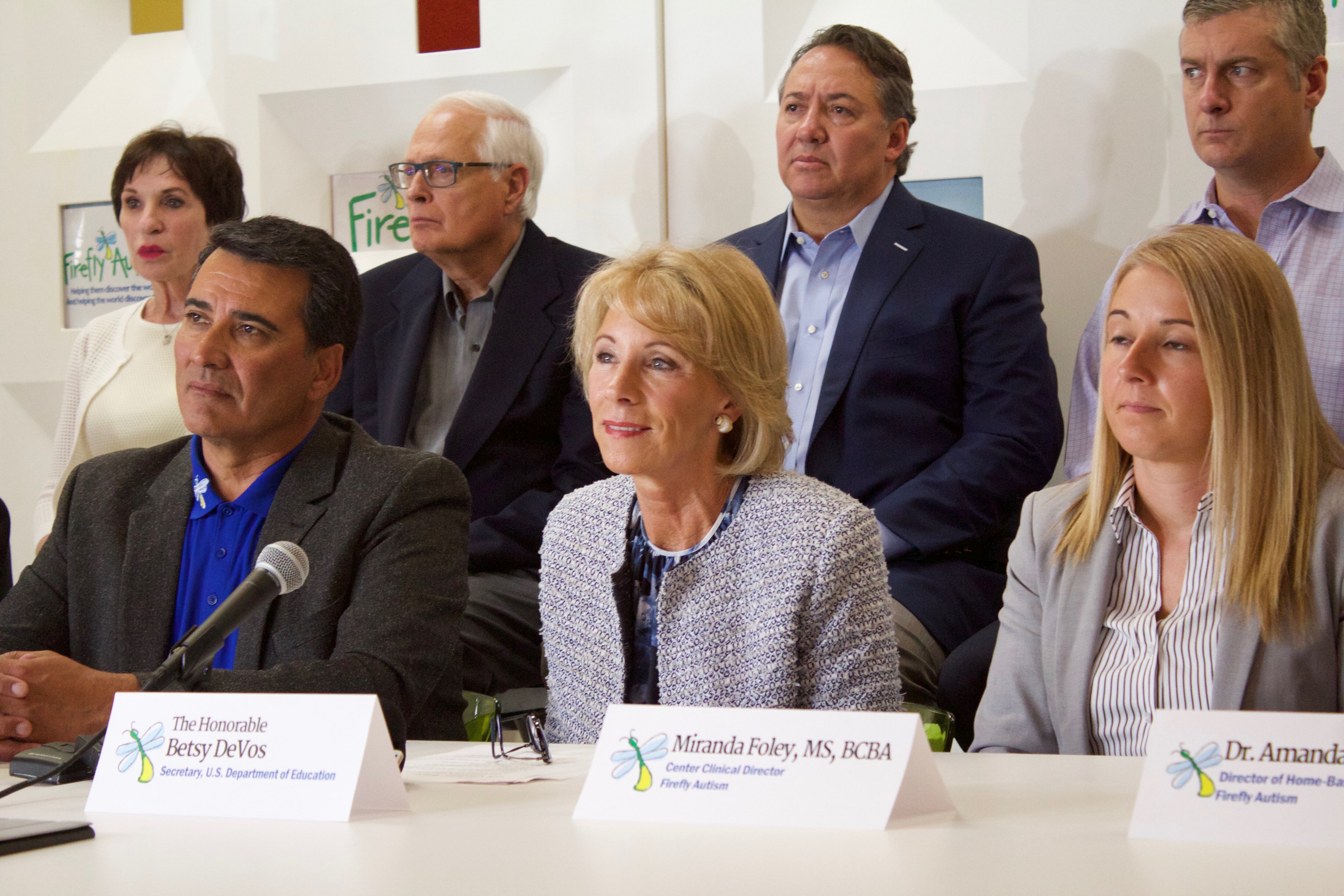Denver Public Schools filed a federal lawsuit against Education Secretary Betsy DeVos Wednesday, claiming that the U.S. Department of Education illegally diverted federal coronavirus relief funds to private schools.
The suit — filed alongside parents, other school districts, and the national NAACP — seeks a judicial order to stop DeVos’ rule from being enforced. It’s the second suit filed in recent weeks against the rule.
“Protecting funds for low-income families and schools that serve the public is the right thing to do at any time,” said DPS superintendent Susana Cordova on a press call. “It is especially important during the COVID-19 public health emergency.” The call was also joined by school board member Angela Cobián.
The suit turns on a part of the CARES Act, the coronavirus relief package that passed in March. The law provides billions of dollars to school districts, some of which must be used to provide certain services to local private schools in the “same manner” as under Title I, the section of federal education law that provides funding to schools serving large numbers of students in poverty. The controversy began a month later when the U.S. Department of Education issued guidance on how much money should be set aside for private schools.
Instead of determining their share based on the number of low-income students in private schools — as is the case under Title I — the guidance says it should be allocated based on all students in private schools. Since private schools in most parts of the country serve fewer low-income students than local public schools, this approach would mean more dollars go to support private schools.
Democrats and public school advocates were furious, saying it was an end run around Congressional intent. Department officials have defended the rule as supporting all students in the midst of the pandemic and emphasized that private schools face financial strain too.
In Denver, fewer than 10% of the city’s private school students are low-income, compared to two-thirds of students in DPS, the lawsuit says, though it’s unclear how much money is at stake for the district.
In June, DeVos cemented key aspects of the guidance into a legally binding rule. The rule did give districts an out if they agreed to only use their own federal dollars to support Title I public schools. But this was not expected to quell the controversy, and in announcing the rule, department officials said they expected a lawsuit to follow.
That’s exactly what happened, when California, Michigan, and other states filed suit two weeks ago. Recently the school districts of Chicago and New York City joined the case.
Today’s lawsuit was filed separately but largely aligns with the other suit. One important difference, attorneys said, is that their suit is seeking a nationwide injunction against DeVos’ rule.
“The rule will most negatively impact students in under-resourced schools in high-poverty districts,” the suit says. “Permanently impairing the education and well-being of our most disadvantaged students during a public health crisis is unconscionable and must be averted.”
A number of legal scholars previously told Chalkbeat that they did not believe DeVos’ approach was consistent with Congress’ intent. But some also said she had a chance of winning a legal battle, because courts give federal agencies wide discretion to interpret the lawsuit.
A spokesperson for the U.S. Department of Education criticized the suit. ”This is a lawsuit aimed at advancing partisan political goals, not helping kids learn,” said Angela Morabito in a statement. “The coronavirus outbreak has impacted every student and every school, and this Administration is committed to supporting all students get back to learning, including students of color.”






